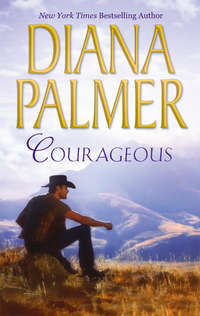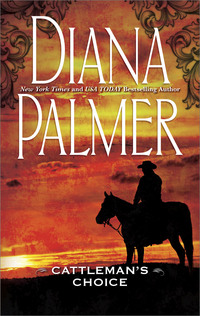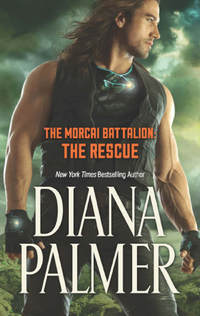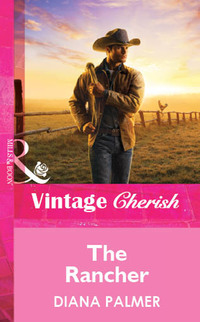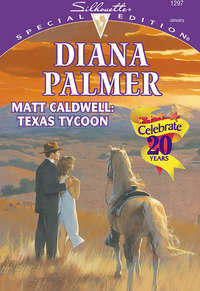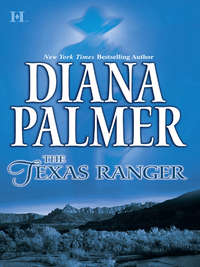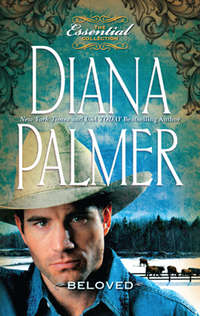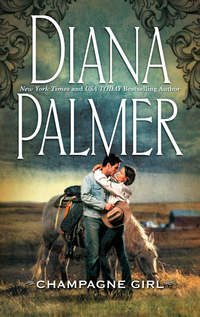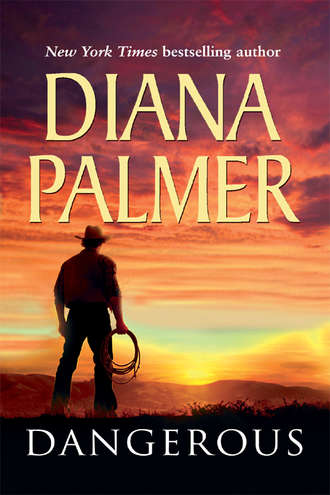
Полная версия
Dangerous

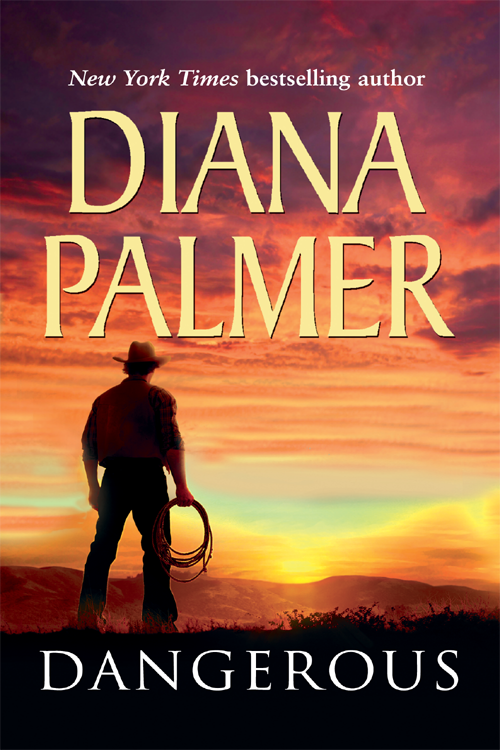
Praise for the novels of New York Times bestselling author Diana Palmer
“Nobody does it better.”
—New York Times bestselling author Linda Howard
“Palmer knows how to make the sparks fly.”
—Publishers Weekly
“Diana Palmer is a mesmerising storyteller
who captures the essence of what a
romance should be.”
—Affaire de Coeur
“Nobody tops Diana Palmer when it comes to delivering
pure, undiluted romance.
I love her stories.”
—New York Times bestselling author Jayne Ann Krentz
Also by Diana Palmer
NIGHT FEVER
ONE NIGHT IN NEW YORK
BEFORE SUNRISE
OUTSIDER
LAWMAN
HARD TO HANDLE
FEARLESS
DIAMOND SPUR
TRUE COLOURS
HEARTLESS
INNOCENCE PROTECTED
WED IN WINTER
About the Author
The prolific author of over one hundred books, DIANA PALMER got her start as a newspaper reporter. One of the top ten romance writers in America, she has a gift for telling the most sensual tales with charm and humour. Diana lives with her family in Georgia.
DIANA
PALMER
DANGEROUS

www.millsandboon.co.uk
To Cindy Angerett, 9-1-1 dispatcher,
Beaver County, Pennsylvania,
and to Emergency Services Personnel everywhere,
who give their time generously,
both on and off the clock, to help someone in need.
1

Kilraven hated mornings. He especially hated mornings like this one, when he was expected to go to a party and participate in Christmas gift-giving. He, the rest of the police, fire and emergency services people in Jacobsville, Texas, had all drawn names around the big Christmas tree in the EOC, the 911 emergency operations center. Today was the day when presents, all anonymous, were to be exchanged.
He sipped black coffee in the Jacobsville Police Station and wished he could get out of it. He glared at Cash Grier, who smiled obliviously and ignored him.
Christmas was the most painful time to him. It brought back memories of seven years ago, when his life had seemed to end. Nightmarish visions haunted him. He saw them when he slept. He worked his own shifts and even volunteered to relieve other Jacobsville police officers when they needed a substitute. He hated his own company. But he hated crowds far more. Besides, it was a sad day, sort of. He’d had a big black Chow keeping him company at his rental house. He’d had to give it away because he wasn’t allowed to keep animals at his apartment in San Antonio, where he would be returning soon. Still, Bibb the Chow had gone to live with a young boy, a neighbor, who loved animals and had just lost his own Chow. So it was fated, he guessed. He still missed the dog, though.
Now, he was expected to smile and socialize at a party and enthuse over a gift that would almost certainly be a tie that he would accept and never wear, or a shirt that was a size too small, or a book he would never read. People giving gifts were kindhearted, but mostly they bought things that pleased themselves. It was a rare person who could observe someone else and give just the right present; one that would be treasured.
At his job—his real job, not this role as a small-town police officer that he’d assumed as part of his covert operation in south Texas near the border with Mexico—he had to wear suits from time to time. Here in Jacobsville, he never wore a suit. A tie would be a waste of money to the person who gave him one for Christmas. He was sure it would be a tie. He hated ties.
“Why don’t you just string me up outside and set fire to me?” Kilraven asked Cash Grier with a glowering look.
“Christmas parties are fun,” Cash replied. “You need to get into the spirit of the thing. Six or seven beers, and you’d fit right in.”
The glare got worse. “I don’t drink,” he reminded his temporary boss.
“Now isn’t that a coincidence?” Cash exclaimed. “Neither do I!”
“Then why are we going to a party in the first place, if neither of us drink?” the younger man asked.
“They won’t serve alcohol at the party. And for another, it’s good public relations.”
“I hate the public and I don’t have relations,” Kilraven scoffed.
“You do so have relations,” came the tongue-in-cheek reply. “A half brother named Jon Blackhawk. A stepmother, too, somewhere.”
Kilraven made a face.
“It’s only for an hour or so,” Cash said in a gentler tone. “It’s almost Christmas. You don’t want to ruin the staff party now, do you?”
“Yes,” Kilraven said with a bite in his deep voice.
Cash looked down at his coffee cup. “Winnie Sinclair will be disappointed if you don’t show up. You’re leaving us soon to go back to San Antonio. It would make her day to see you at the party.”
Kilraven averted his gaze to the front window beyond which cars were driving around the town square that was decorated with its Santa, sled and reindeer and the huge Christmas tree. Streamers and colored lights were strung across every intersection. There was a tree in the police station, too, decked out in holiday colors. Its decorations were, to say the least, unique. There were little handcuffs and toy guns and various emergency services vehicles in miniature, including police cars. As a joke, someone had strung yellow police tape around it.
Kilraven didn’t want to think about Winnie Sinclair. Over the past few months, she’d become a part of his life that he was reluctant to give up. But she didn’t know about him, about his past. Someone had hinted at it because her attitude toward him had suddenly changed. The shy smiles and rapt glances he’d been getting had gone into eclipse, so that now she was formal and polite when they spoke over the police band while he was on duty. He rarely saw her. He wasn’t sure it was a good idea to be around her. She’d withdrawn, and it would be less painful not to close the distance. Of course it would.
He shrugged his broad shoulders. “I guess a few Christmas carols won’t kill me,” he muttered.
Cash grinned. “I’ll get Sergeant Miller to sing you the one he composed, just for us.”
Kilraven glared at him. “I’ve heard it, and please don’t.”
“He doesn’t have a bad voice,” Cash argued.
“For a carp, no.”
Cash burst out laughing. “Suit yourself, Kilraven.” He frowned. “Don’t you have a first name?”
“Yes, I do, but I don’t use it, and I’m not telling it to you.”
“I’ll bet payroll knows what it is,” Cash mused. “And the bank.”
“They won’t tell,” he promised. “I have a gun.”
“So do I, and mine’s bigger,” Cash returned smartly.
“Listen, I have to do concealed carry in my real job,” he reminded the older man, “and it’s hard to fit a 1911 Colt.45 ACP in my waistband so that it doesn’t show.”
Cash held up both hands. “I know, I know. I used to do concealed carry, too. But now I don’t have to, and I can carry a big gun if I want to.”
“At least you don’t carry a wheel gun, like Dunn does.” He sighed, indicating Assistant Chief Judd Dunn, who was perched on the edge of his desk talking to a fellow officer, with a.45 Ruger Vaquero in a fancy leather holster on his hip.
“He belongs to the Single Action Shooting Society,” Cash reminded him, “and they’re having a competition this afternoon. He’s our best shot.”
“After me,” Kilraven said smugly.
“He’s our best resident shot,” came the reply. “You’re our best migrating shot.”
“I won’t migrate far. Just to San Antonio.” Kilraven’s silver eyes grew somber. “I’ve enjoyed my time here. Less pressure.”
Cash imagined part of the reduced pressure was the absence of the bad memories Kilraven still hadn’t faced, the death of his family seven years ago in a bloody shooting. Which brought to mind a more recent case, a murder that was still being investigated by the sheriffs department with some help from Alice Mayfield Jones, the forensic expert from San Antonio who was engaged to resident rancher Harley Fowler.
“Have you told Winnie Sinclair about her uncle?” Cash asked in a hushed tone, so that they wouldn’t be overheard.
Kilraven shook his head. “I’m not sure that I should at this stage of the investigation. Her uncle is dead. Nobody is going to threaten Winnie or Boone or Clark Sinclair because of him. I’m not even sure what his connection to the murder victim is. No use upsetting her until I have to.”
“Has anyone followed up on his live-in girlfriend?”
“Not with any more luck than they had on the first interview,” Kilraven replied. “She’s so stoned on coke that she doesn’t know the time of day. She can’t remember anything that’s of any use to us. Meanwhile, the police are going door to door around that strip mall near the apartment where the murder victim lived, trying to find anybody who knew the guy. Messy murder. Very messy.”
“There was another case, that young girl who was found in a similar condition seven years ago,” Cash recalled.
Kilraven nodded. “Yes. Just before I … lost my family,” he said hesitantly. “The circumstances are similar, but there’s no connection that we can find. She went to a party and disappeared. In fact, witnesses said she never showed up at the party, and her date turned out to be fictional.”
Cash studied the younger man quietly. “Kilraven, you’re never going to heal until you’re able to talk about what happened.”
Kilraven’s silver eyes flashed. “What use is talk? I want the perp.”
He wanted vengeance. It was in his eyes, in the hard set of his jaw, in his very posture. “I know how that feels,” Cash began.
“The hell you do,” Kilraven bit off. “The hell you do!” He got up and walked off without another word.
Cash, who’d seen the autopsy photos, didn’t take offense. He was sorry for the other man. But there was nothing anybody could do for him.
KILRAVEN DID GO TO the party. He stood next to Cash without looking at him. “Sorry I lost my temper like that,” he said gruffly.
Cash only smiled. “Oh, I don’t get ruffled by bad temper anymore.” He chuckled. “I’ve mellowed.”
Kilraven turned to face him with wide eyes. “You have?”
Cash glared at him. “It was an accident.”
“What was, the pail of soapy water, or the sponge in his mouth?”
Cash grimaced. “He shouldn’t have called me a bad name when I was washing my car. I wasn’t even the arresting officer, it was one of the new patrol officers.”
“He figured you were the top of the food chain, and he didn’t like people seeing him carried off from the dentist’s office in a squad car,” Kilraven said gleefully.
“Obviously, since he was the dentist. He put one of his prettier patients under with laughing gas and was having a good time with her when the nurse walked in and caught him.”
“It does explain why he moved here in the first place, and settled into a small-town practice, when he’d been working in a major city,” Cash mused. “He’d only been in practice here for a month when it happened, back in the summer.”
“Big mistake, to start raging at you in your own yard.”
“I’m sure he noticed,” Cash replied.
“Didn’t you have to replace his suit …?”
“I bought him a very nice replacement,” Cash argued. “The judge said I had to make it equal in price to the one I ruined with soap and water.” He smiled angelically. “She never said it had to be the same color.”
Kilraven grimaced. “Where in hell did you even find a yellow and green plaid suit?”
Cash leaned closer. “I have connections in the clothing industry.”
Kilraven chuckled. “The dentist left town the same day. Think it was the suit?”
“I very much doubt it. I think it was the priors I pulled up on him,” Cash replied. “I did just mention that I’d contacted two of his former victims.”
“And gave them the name of a very determined detective out of Houston, I heard.”
“Detectives are useful.”
Kilraven was still staring at him.
He shrugged.
“Well, I’m never talking to you when you’re washing your car, and you can bet money on that,” Kilraven concluded.
Cash just grinned.
The 911 operations center was full. The nine-foot-tall Christmas tree had lights that were courtesy of the operations staff. The LED bulbs glittered prettily in all colors. Underneath, there was a treasure trove of wrapped packages. They were all anonymous. Kilraven glared at them, already anticipating the unwanted tie.
“It’s a tie,” Kilraven muttered.
“Excuse me?” Cash asked.
“My present. Whoever got me something, it will be a tie. It’s always a tie. I’ve got a closet full of the damned things.”
“You never know,” Cash said philosophically. “You might be surprised.”
Amid the festive Christmas music, the staff of the operations center welcomed their visitors with a brief speech about the hard work they put in all year and listed some of their accomplishments. They thanked all the emergency services personnel, including EMTs, fire and police, sheriff’s department and state police, Texas Rangers and state and federal law enforcement for their assistance. The long refreshment tables were indicated, and guests were invited to help themselves. Then the presents were handed out.
Kilraven was briefly stunned at the size of his. Unless it was a very large tie, or camouflaged, he wasn’t sure what he’d snagged here. He turned the large square over in his hands with evident curiosity.
Little blonde Winnie Sinclair watched him out of the corner of her dark eyes. She’d worn her blond, wavy hair long, around her shoulders, because someone had said Kilraven didn’t like ponytails or buns. She wore a pretty red dress, very conservative, with a high neckline. She wished she could find out more about their enigmatic officer. Sheriff Carson Hayes had said some of Kilraven’s family had died in a murder years before, but she hadn’t been able to worm any more information out of him. Now they had a real, messy murder victim—actually their second one—killed in Jacobs County, and there was a rumor around law enforcement circles that a woman in San Antonio had known the victim and died for it. There were even more insistent rumors that the cold case was about to be reopened.
Whatever happened, Kilraven was supposed to leave and go back to his federal job in San Antonio after Christmas. Winnie had been morose and quiet for days. She’d actually drawn Kilraven’s name for that secret present, although she had a hunch her coworkers had arranged it. They knew how she felt about him.
She’d spent hours trying to decide what to give him. Not a tie, she thought. Everybody gave ties or handkerchiefs or shaving kits. No, her gift had to be something distinctive, something that he wouldn’t find on any store shelf. In the end, she put her art talent to work and painted him a very realistic portrait of a raven, surrounded by colorful beads as a border. She didn’t know why. It seemed the perfect subject. Ravens were loners, highly intelligent, mysterious. Just like Kilraven. She had it matted at the local frame shop. It didn’t look bad, she thought. She hoped he might like it. Of course, she couldn’t admit that she’d given it to him. The gifts were supposed to remain anonymous. But he wouldn’t know anyway because she’d never told him that she painted as a hobby.
Her life was magic just because Kilraven had come into it. Winnie came from great wealth, but she and her brothers rarely let it show. She enjoyed working for a living, making her own money. She had a little red VW that she washed and polished by hand, bought out of her weekly salary. It was her pride and joy. She’d worried at first that Kilraven might be intimidated by her monied background. But he didn’t seem to feel resentment, or even envy. In fact, she’d seen him dressed up once for a conference he was going to. His sophistication was evident. He seemed at home anywhere.
She was going to be miserable when he was gone. But it might be the best thing. She was crazy about him. Cash Grier said that Kilraven had never faced his demons, and that he wasn’t fit for any sort of relationship until he had. That had depressed Winnie and affected her attitude toward Kilraven. Not that it squelched her feelings for him.
While she was watching him with helpless delight, he opened the present. He stood apart from the other officers in his department, his dark head bent over the wrapping paper, his silver eyes intent on what he was doing. At last, the ribbon and paper came away. He picked up the painting and looked at it, narrow-eyed, so still that he seemed to have stopped breathing. All at once, his silver eyes shot up and pierced right into Winnie’s dark ones. Her heart stopped in her chest. He knew! But he couldn’t!
He gave her a glare that might have stopped traffic, turned around and walked right out of the party with the painting held by its edge in one big hand. He didn’t come back.
Winnie was sick at heart. She’d offended him. She knew she had. He’d been furious. She fought tears as she sipped punch and nibbled cookies and pretended to be having a great time.
KILRAVEN WENT THROUGH the motions of doing his job until his shift ended. Then he got into his own car and drove straight up to San Antonio, to the apartment of his half brother, Jon Blackhawk.
Jon was watching a replay of a soccer match. He got up to answer the door, dressed in sweatpants and nothing else, with his loosened black, thick hair hanging down to his waist.
Kilraven gave him a hard stare. “Practicing your Indian look?”
Jon made a face. “Getting comfortable. Come in. Isn’t this a little late for a brotherly visit?”
Kilraven lifted the bag he was carrying, put it on the coffee table and pulled out the painting. His eyes were glittering. “You told Winnie Sinclair about the raven pictures.”
Jon caught his breath when he saw the painting. Not only was it of a raven, Melly’s favorite bird, but it even had the beadwork in the same colors framing it against a background of swirling oranges and reds.
He realized, belatedly, that he was being accused. He lifted his dark eyes to his brother’s light ones. “I haven’t spoken to Winnie Sinclair. Ever, unless I’m mistaken. How did she know?”
The older man’s eyes were still flashing. “Somebody had to tell her. When I find out who, I’ll strangle him.”
“Just a thought,” Jon pondered, “but didn’t you tell me that she called for backup on a domestic dispute when you didn’t call and ask for it?”
Kilraven calmed down a little. “She did,” he recalled. “Saved my butt, too. The guy had a shotgun and he was holding his wife and daughter hostage with it because the wife was trying to get a divorce. Backup arrived with sirens and lights blaring. Diverted him just long enough for me to subdue him.”
“How did she know?” Jon asked.
Kilraven frowned. “I asked. She said she had a feeling. The caller hadn’t told her about the shotgun, just that her estranged husband had walked in and made threats.”
“Our father used to have those flashes of insight,” Jon reminded him. “It saved his life on more than one occasion. Restless feelings, he called them.”
“Like on the night my family died,” Kilraven said, sitting down heavily in an easy chair in front of the muted television. “He went to get gas in his car for the next day when he had a trip out of town for the Bureau. He could have gone anytime, but he went then. When he came back …”
“You and half the city police force were inside.” Jon winced. “I wish they could have spared you that.”
Kilraven’s eyes were terrible. “I can’t get it out of my mind. I live with it, night and day.”
“So did Dad. He drank himself to death. He thought maybe if he hadn’t gone to get gas, they’d have lived.”
“Or he’d have died.” He was recalling Alice Mayfield Jones’s lecture of the week before. “Alice Jones read me the riot act about that word if.” He smiled sadly. “I guess she’s right. We can’t change what happened.” He looked at Jon. “But I’d give ten years of my life to catch the guys who did it.”
“We’ll get them,” Jon said. “I promise you, we will. Had supper yet?” he added.
Kilraven shook his head. “No appetite.” He looked at the painting Winnie had done. “You remember how Melly used her crayons?” he asked softly. “Even at the age of three, she had great talent …” He stopped abruptly.
Jon’s dark eyes softened. “That’s the first time I’ve heard you say her name in seven years, Mac,” he said gently.
Kilraven grimaced. “Don’t call me …!”
“Mac is a perfectly nice nickname for McKuen,” he said stubbornly. “You’re named for one of the most famous poets of the seventies, Rod McKuen. I’ve got a book of his poems around here somewhere. A lot of them were made into songs.”
Kilraven looked at the bulging bookcases. There were plastic bins of books stacked in the corner. “How do you ever read all those?” he asked, aghast.
Jon glared at him. “I could ask you the same question. You’ve got even more books than I have. The only things you have more of are gaming discs.”
“It makes up for a social life, I guess,” he confessed with a sheepish grin.
“I know.” Jon grimaced. “It affected us both. I got gun-shy about getting involved with women after it happened.”
“So did I,” Kilraven confessed. He studied the painting. “I was furious about that,” he said, indicating it. “The beadwork is just like what Melly drew.”
“She was a sweet, beautiful child,” Jon said quietly. “It isn’t fair to put her so far back in your memories that she’s lost forever.”
Kilraven drew a long breath. “I guess so. The guilt has eaten me alive. Maybe Alice is right. Maybe we only think we have control over life and death.”
“Maybe so.” Jon smiled. “I’ve got leftover pizza in the fridge, and soda. There’s a killer soccer match on. The World Cup comes around next summer.”
“Well, whoever I root for will lose, like always,” he replied. He sat down on the sofa. “So, who’s playing?” he asked, nodding toward the television.
WINNIE WAS SICK AT heart when she left after the party to go home. She’d made Kilraven furious, and just before he was due to leave Jacobsville. She probably wouldn’t ever see him again, especially now.
“What in the world happened to you?” her sister-in-law, Keely, asked when she came into the kitchen where the younger woman was making popcorn.
“What do you mean?” Winnie asked, trying to bluff it out.
“Don’t give me that.” Keely put her arms around her and hugged her. “Come on. Tell Keely all about it.”
Winnie burst into tears. “I gave Kilraven a painting. He wasn’t supposed to know it was me. But he did! He looked straight at me, like he hated me.” She sniffed. “I’ve ruined everything!”
“The painting of the raven?” Keely recalled. “It was gorgeous.”
“I thought it looked pretty good,” Winnie replied. “But he glared at me as if he wanted to tear a hole in me, and then he just walked out of the party and never came back.”
“Maybe he doesn’t like ravens,” the other woman suggested gently. “Some people are afraid of birds.”
Winnie laughed, nodding thankfully as Keely put a paper towel in her hands. She dried her eyes. “Kilraven’s not afraid of anything.”
“I suppose not. He does take chances, though.” She frowned. “Didn’t you send backup for him after some attempted shooting lately? They were talking about it at work. One of our girls is related to Shirley, who works with you at the 911 operations center,” she reminded her.


